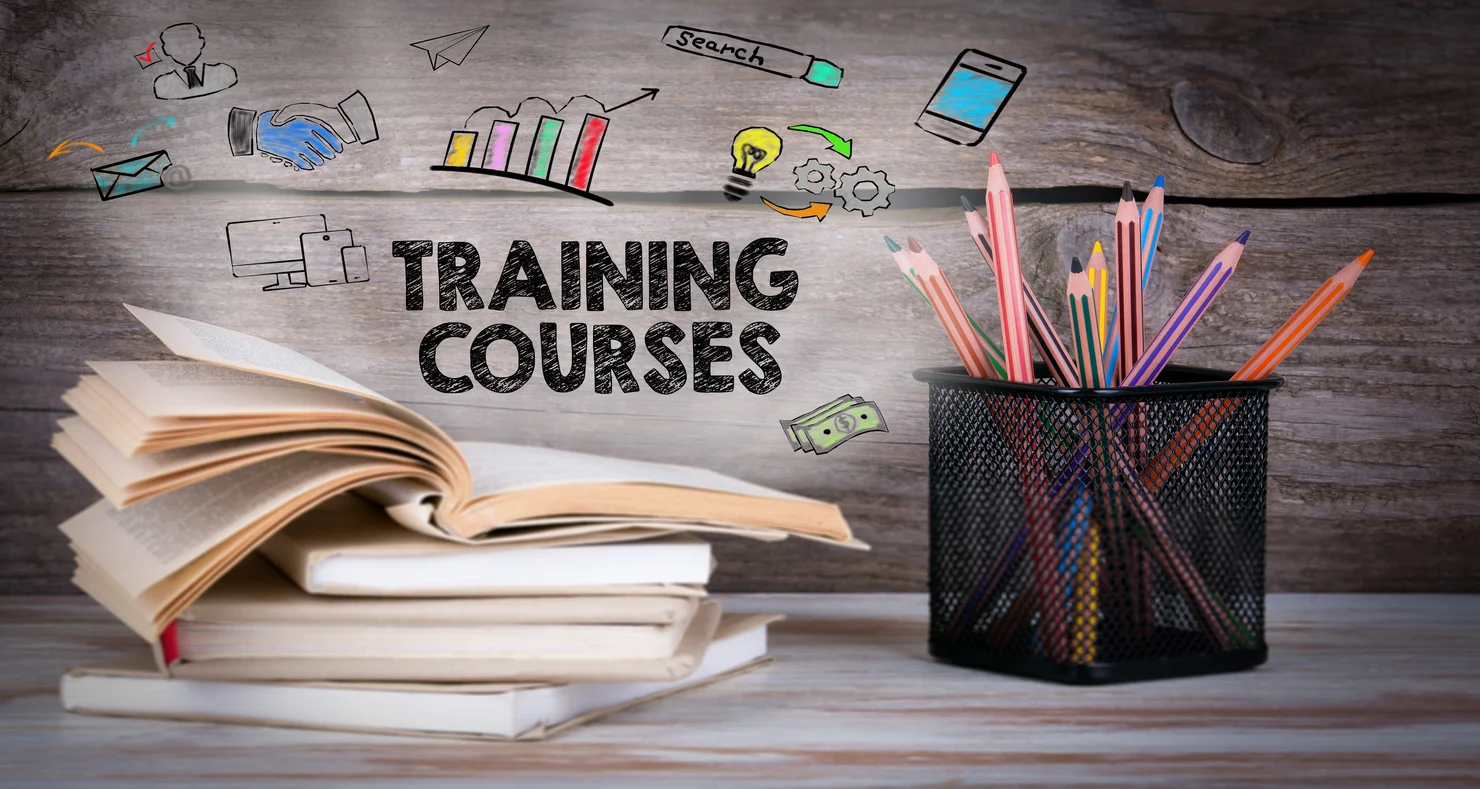We’re going to find out what an info product is and why it’s profitable to start an info product business. We’ll consider types of info products, we’ll make step-by-step instructions for creating an info product from scratch and we’ll talk about ways to promote it.
What is an info product?
An info product is knowledge and skills packed into a product in the form of a webinar, video or audio course, book, checklist, and so on, which can close specific pain buyers.
To engage in the info business, that is, selling info products, you need to have proven expertise. Be prepared to show your audience diplomas, certificates, and successful cases.
Why create?
Info business is a profitable and promising business.
Training courses, marathons, and books bring authors good revenues. The same product can be sold many times, so the cost of creating it quickly pays off. The advantage of the info business is that the rental of premises for offices and warehouses is not required, and there are no risks associated with the storage and transportation of goods. The only exception is the sale of books and other materials in physical form.
Specialists in various fields create info products to increase their audience, raise their visibility and reinforce their status as an expert. Sometimes they give some of the information for free and charge for individual consultations.
In addition to the obvious goal of monetizing knowledge and skills, entrepreneurs and companies create info products to get people to buy their other products and services. For example, a cosmetics brand might launch a course on proper skin care with a breakdown of important ingredients that are, of course, in its products.
A clothing brand might launch courses on style and image, a health food manufacturer might run cooking classes, and a sporting goods store might run online workouts. Such info products can be an auxiliary source of income as well as an additional way to attract customers. In this case, they are free.
Types
Methodology Manual (Guide)
Manual is a small training material on a narrow topic, which solves a particular problem of the target audience. The information in it is presented consistently in an accessible form so that a non-professional can easily understand it.
The tutorial can be used as an intermediate product. Lead magnet.
Checklist
These are all small materials that do not require complicated work and therefore are not of high value. Usually contain information that can be found in the public domain, but here it is presented in a structured way.
Seminar and Webinar
A seminar implies a meeting with a speaker in person, while a webinar is online. The expert explains a certain topic, discusses real cases, shares secrets from practice, etc. At the same time, he interacts with the audience: he answers questions or asks them himself. At the same time, he interacts with the audience: answers questions or asks them himself, and conducts quizzes and games.
Auto webinar
This is a broadcast recording of the sales webinar. The viewers are usually assured that it is a live broadcast. The auto webinar is monitored by moderators to answer questions in the chat and maintain the appearance of a live webinar.
Conversion to sales is lower than with a regular webinar, but you can save time expert and make the launch the desired number of times at any time.
Training Course and Training
A training course consists of several consecutive lessons on a particular topic or skill. The duration depends on the topic and the detail of the lessons. Courses come with and without feedback.
Intensive
This is an accelerated course with practical exercises. It contains the basic information from a large training course, which must be mastered in a short period – usually no more than four or five days.
People who have some background usually come to the intensive, but sometimes events of this format are also held for beginners: for example, writing simple code in a couple of classes or creating a simple animation.
Marathon
A short-term online training course in which participants have to complete tasks according to a plan and in the end come to the desired result: make an investment strategy, improve their skin condition or sit on the splits, for example. Marathons are often held in the form of a game, combining benefits and entertainment.
There are paid and free marathons, in the second case the duration is no more than one week.
With such a format, you can gain new subscribers and form a loyal community around yourself and your product, which will result in good sales.
Master Classes and Workshops
Online and offline. In a master class, the master tells and shows how to do something on their own – he passes on his skill to the participants. In a workshop, students repeat what the expert does to consolidate their knowledge in practice. Sometimes a master class is understood as both a theoretical part and practical work.
There is usually a fee to enter the workshops.
Podcast
Learning audio podcasts can save students time. In addition, it is faster and easier to record a series of audio lessons than to shoot and edit videos. This info product format is suitable if there is no need for the visual accompaniment of the material.
The Book
Writing a book is one of the most time-consuming ways to create an info product. A quality book has a minimum of “water” and a maximum of usefulness, with many practical examples and working recommendations. Structured material is accompanied by illustrations, diagrams, and mind maps.
Printed books give more weight to the name of an expert or company and improve recognition, but they require a large budget.
How to create an info product
Let’s analyze the algorithm of creation, which includes the following steps.
Choose a niche
There are two types of niches in the info business: soft and hard. In soft niches, it is difficult to measure results and calculate monetary benefits. This includes topics of self-development, psychology, relationships, and the like. Sales emphasize emotional impact, often spontaneous purchases.
The hard niche – is training in specific skills, the results of which are easy to measure: a course on “Web Design from Zero to Pro”, an intensive to master the English language or a master class on making Japanese sweets. By the end of such training, participants will have mastered a new specialty, improved their English skills from Beginner to Pre-Intermediate, and received a handmade dessert.
First, analyze the market to determine its monetary volume, dynamics, and growth drivers. For this purpose, you can hire specialists or do the work yourself using special resources: e.g. Statista, Euromonitor International, and MarketResearch.
Analyze the audience
Describe your target audience: age, gender, education, place of residence, ability to pay, interests, level of competence in the topic of the future info product, and other parameters. Draw up a detailed portrait of your client so that you can see not an abstract image, but a specific person. It also helps to study your competitors’ audiences.
To get to know your audience better and identify their pains, conduct a questionnaire or an interview. Look for representatives of your target audience in thematic groups on social networks or among your subscribers.
Make a development plan
- Think through all the nuances of the learning process and answer the questions:
- how students will access the materials;
- if it is a course, are all the lessons immediately available, or are they open as you go through them;
- whether there are homework assignments, and who will check them;
- whether there is an incentive system for completing the course on time;
- where communication takes place during the course;
- Whether students can communicate with each other or only with the supervisor;
- whether access to the materials is for the duration of the course or indefinitely;
- if it is a course in a field of study, is there job placement assistance provided?
- whether there will be interaction with students after they graduate.
This is a sample list. Describe in as much detail as possible what the product is.
If the lessons are long, divide them into small steps so that it’s easier for students to tune in to a difficult topic.
Info product creation and packaging
A full-fledged package presupposes a website with information about the expert, the info product, and the possibility to pay for it. For this task, you can hire a specialist or use a website builder.
How to promote an info product
Once you have decided to make an info product, it is important to develop social networks. You can create a community or concentrate on personal accounts. Post useful materials, talk about cool cases and professional achievements – confirm your status as an expert. When it’s time to launch, your audience will become lukewarm and more willing to buy from you.
Promote through other experts and bloggers who have your audience. Run targeted ads and promise a lead magnet in the form of a checklist or guide to anyone who signs up for an account.
Invite those who follow you on social media to sign up for a newsletter with useful content in a chatbot or by email. This will be an additional opportunity to remind them of your product before the sales launch.
You can choose contextual advertising and website SEO promotion. Another recommendation: hold free webinars so that more potential buyers learn about you as an expert.

